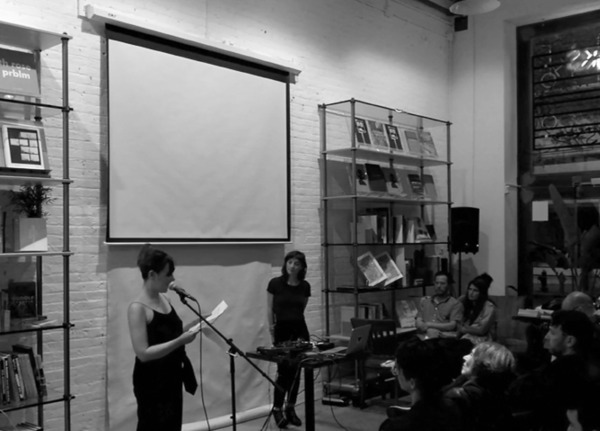
PLEASE BE CAREFUL MADONNA
first performed on May 5, 2018
Hauser & Wirth, New York, NY
performed once in 2018
CAT TYC
Lea Bertucci, Scott Kiernan
Brooklyn, NY
cat-tyc.squarespace.com
PLEASE BE CAREFUL MADONNA
CAT TYC
I read a story about a love letter that Tupac wrote Madonna in the mid 90s while he was in prison.
Now it is now and a former agent stole personal items from Madonna’s house and has put this text up for auction. The starting bid is $100,000.
Lately Madonna has been speaking publicly about a revolution of love. She has a long history of taking on controversy. Even in this footage I choose to have processed . . . one interview is from Nightline. Over a music video. Where she is kissing a black man.
Sound artist and composer Lea Bertucci is the first collaborator I bring to this performance. She notices the redactions in the scan of the letter—almost as pause for response - we take this as an ordering for how this conversation could go.
Roland Barthes’s Lovers Discourse seems like the go-to but this particular white man cannot be enough. Will never be enough. So my search much continue.
I have to acknowledge the potential pitfalls of using an appropriative strategy in regards to this particular subject matter. I think it goes without being said the conceptual mistakes of others in recent years in the art/poetry realm.
I talk to artist Dominika Ksel about this and she suggests I look at Toi Derricotte’s The Black Notebooks. I am telling her about how I feel like I have to find a text to articulate a part of my identity which is being a white Latina. She suggests this text because Derricotte is writing about being a white-passing African American woman in a world where she is married to a darker black man.
The performance consists of Lea and I working together in recorded loops as Scott Kiernan uses a custom software that uses IBM Watson speech to text AI to generate live words in reaction to sound. As we work through it, several tiers of this re-writing are created as a way to acknowledge how hard this all is to talk about. The incorporation of all this into a performance reminds me of another section in Derricotte’s book: “Voice becomes, not a synthesis of opposing voices, but rather a path of energy that is allowed by all sides, one that gains egress past restrictions by bowing to them at the same time they are disobeyed, by bargaining and earning.”